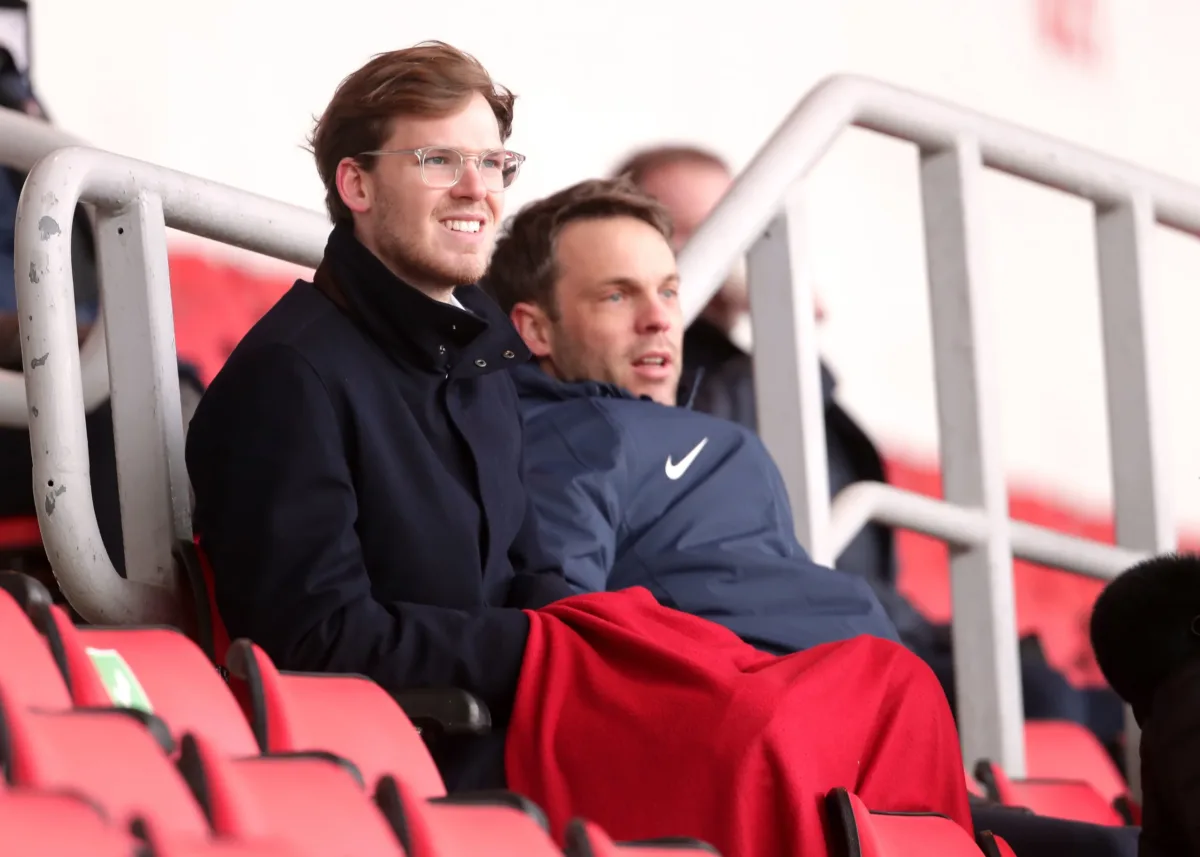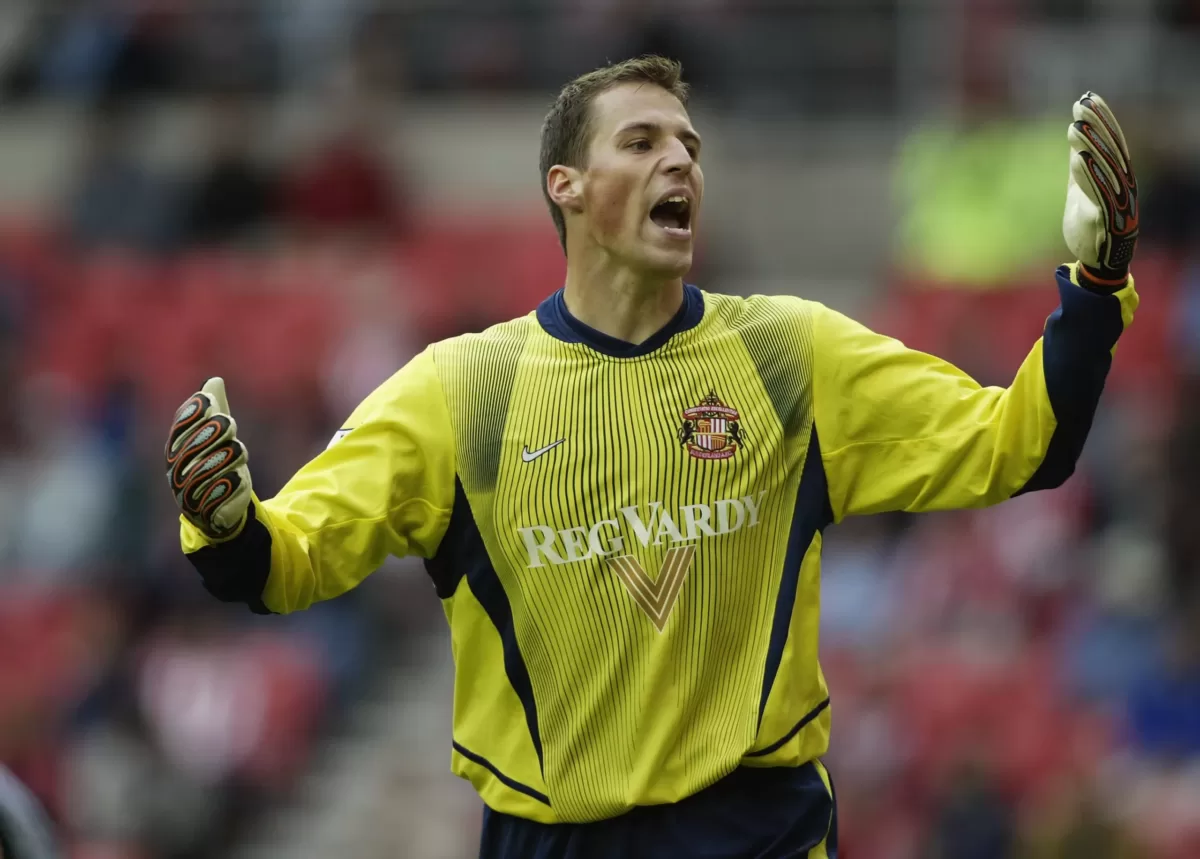The debate goes like this – Sunderland AFC’s Sporting Director helped the club rise from League One. We are where we are because of him. Or, if you prefer the alternative narrative – he is responsible for assembling an unbalanced and deficient squad incapable of promotion to the Premier League.
That particular discourse, in which Kristjaan Speakman is the main protagonist, will rage interminably. It has also become a distraction from a more pertinent question.
Surely the relevant storyline is to be found when you bring together the two important elements of the club’s recruitment blueprint. Once you do, ask yourself…
If top-flight football is the aim, why has the board implemented a philosophy which, when looking back at least 10 years, has no evidence of success?
None. Actually, none whatsoever.
The statistics bear this out. Let us delve a bit deeper.
STICK THE EMBRYO UP FRONT?
Clearly experience is not the only marker of success. Yet, as we know (and therefore so too must the ownership) there has been no Championship side promoted in recent history with an average age below 24 years (Brentford, 2020/21). Bournemouth, similarly achieved success with a group who had an average age of 24.7yrs. Crucially, these are actually outliers. Typically promotion is achieved with sides instead between 25.6yrs and 27.6yrs. Much older than the juvenile group now assembled here.
The Black Cats’ squad was already the youngest in the division last season. Given the statistics above, you are left questioning the logic therefore of a calculated decision to reduce that age further with the average age now sitting at an almost embryonic (in footballing terms) – 22.6yrs. Remarkably, in recent matches the average age of the starting XI is even lower. Against Southampton at the weekend Sunderland AFC started the game with the youngest team, by some margin, the second tier has seen for 20 years.
If we accept the wildly naïve notion that all of these current young players will stay at the club for at least another three years or so, all then develop into top talents and sufficiently mature at exactly the same time to maximise the chance of going up, that would still take the club beyond their own five year plan for promotion. Should you need a reminder, we are currently in year three.
How does one square that circle?
Experience does not guarantee promotion on its own, of course. Perhaps those in charge of drafting the recruitment blueprint are instead focused on ensuring that a sufficient number of the young talent now available has both a high ceiling but also an ability to contribute regularly in the present. Tricky to pull off but a potentially effective option and the best of both worlds.
It is unfortunate then that of the 18 players signed by Sunderland AFC since January 2023 only two are actually deemed (by three separate Head Coaches no less) ready to feature week in week out. This number potentially increases to a whopping three as Leo Hjelde has played consistently since he signed this past winter. Although, on current form he is unlikely to get in the side ahead of Dennis Cirkin, Aji Alese or Niall Huggins when they are fit, which in itself is not as straightforward as one would think.
Even if several of these players go on to excel in the future, prompting us to look back on those transfer windows in a better light, this is a damning statistic by any measure. As we have found recently with six consecutive losses (an occurrence not seen since 2006), when injuries begin to bite – compounded by those prevailing gaps in the squad – it’s important to have at least some players ready to step in immediately and help pick up results. That has simply not proven possible with the current crop. Given their profile this is not unexpected. Yet, here we are.

HOW LONG CAN THE QUEST FOR SUSTAINABILITY BE SUSTAINABLE?
The other relevant point within this broader analysis relates to Kyril Louis-Dreyfus’ aspiration for ‘sustainability’. The club is seeking to succeed solely on income it generates through its various transfer activity and commercial driven initiatives. The hope is that the accounts will eventually record a healthy profit rather than financial losses.
A noble goal, certainly.
Without wishing to sound like an attempt to proselytise though, this is not how promotion to the top flight is achieved. It should be noted, plenty of football clubs have paid the price for over committing when seeking to reach the promise land. The pitfalls are real. Perhaps it is understandable then that alternative options were explored. But, once again no team in the place Sunderland AFC is seeking to position itself has ever reached the Premier League in recent history.
None. In fact it has often had the adverse effect.
As fellow Wise Men Say contributor Chris Weatherspoon noted on X recently, “Of 33 clubs to post profit in EFL Championship since 2013/14, eight – nearly a quarter – were relegated. Only three profit-making clubs achieved promotion.”
Ah ha!? So three have succeeded in our situation?
Sadly not, “only one of those didn’t have EPL parachute payments.”
Well, one succeed then. So there is actual precedent?
Alas, again no.
The one example (Burnley, 2013/14), “actually made a loss.” However, £8m of promotion bonuses paid out was excluded from Chris’ analysis. As he goes on to explain, “A more accurate comparison across clubs would actually leave those in as not everyone discloses the amount of promotion bonuses…”
The bottom line from these statistics, however much we would prefer it not to be, is the average collective wages to turnover ratio for clubs during this period was 107%.
It is clear then that neither of the two main pillars underpinning Sunderland AFC’s chosen footballing model (strict player profile and sustainability) offer evidence of success when aiming for the Premier League. In fact, based on those very strict parameters they themselves have set and if data is indeed driving decisions, we can only speculate why the club hierarchy saw fit to not only to implement one aspect of the plan but both.
A promotion from League One cannot always be the answer when the question we are asking and the challenge in front of us is now different.

TIME TO TWEAK THE MODEL
Not all of the transfers since Louis-Dreyfus took control have been poor. Plaudits must go to the team responsible for many brought in since the Frenchman arrived. It is due to some of these individuals that the beginning of the season went as well as it did. The baby does not need to be thrown out with the bath water. But, the frustration for an increasing number of supporters is that the ownership have ignored frequent calls to adapt and flex their approach sufficiently to at least course correct when it was needed. Instead, as referenced above, from January 2023 Louis-Dreyfus et al double downed.
Another niggle of course is it has not just been fans who have raised alarm. Employees inside the club have persistently highlighted their concerns. Alex Neil, Tony Mowbray and Michael Beale have all stated publicly their own feelings on the squad deficiencies in recent times. They have done so whilst also rightly recognising there is existing talent in the ranks. Again, it is possible to acknowledge this whilst also accepting the group is not fully supported with a balanced squad that includes depth and experience. Sadly Tony Mowbray appeared to have paid the price for his honesty as in this writer’s opinion he was rather petulantly dismissed not long after he proclaimed, “We don’t look like scoring – I think it’s because we have inexperienced strikers who aren’t really ready at this moment to play for our team.”
It is hard to analyse the relevant numbers (three goals from four strikers all season) and conclude Mowbray was anything other than correct.

Circling back to the question posed at the beginning and the answer to why this model was chosen (with both key elements covered here) is very likely to be a financially motivated reason. You may consider this prudent. Yet, pull back the curtain and we can see there is nothing tangible to suggest it will work. Zero. Nada. Nothing in recent history at any rate.
Saving money is admirable. Certainly no reasonable supporter is suggesting spending recklessly. But, for sides in the Championship, profit in the bank does not equate to Premier League status. As the above statistics show, that is just the fact of the matter. When promotion is so hard to secure, why then make an already difficult task even harder? Only those in the seats of power can fully answer that one.
So, in the face of overwhelming evidence and an increasing number of people opposing the dogmatic approach adopted, we are left to ponder;
What would need to happen next?
How many more inside and outside of the club would need to shout up?
How many season card holders would it take not to renew?
What level of further regression would need to unfold?
Before the moment of realisation dawns on the board that – in repeatedly refusing to tweak their plan in the face of compelling grounds to suggest change is needed – they have wandered too far down the wrong path.
And because of their refusal to turn back, this stubbornness will see Sunderland AFC continue to at best stagnate or at worst regress until that position changes.




























